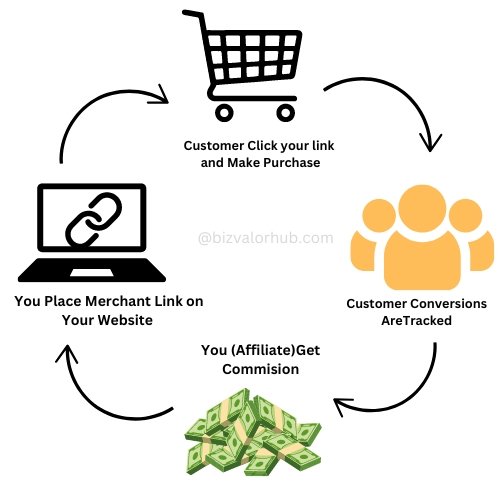Have you ever thought about earning extra income by sharing products or services you love online? The term ‘Affiliate Marketing’ frequently pops up, but what exactly is it? Can it really make you wealthy with ease? The internet is flooded with information about affiliate marketing, but much of it is exaggerated or filled with pitfalls. This article will uncover the truth about affiliate marketing, diving deep into its pros and cons, how it works, and real success stories, to help you understand whether it’s worth your time and effort.
Affiliate Marketing: The Truth Unveiled

In the ever-evolving digital landscape, where opportunities for financial freedom seem to sprout like mushrooms after a rain, affiliate marketing often emerges as a tempting prospect. Its allure lies in the promise of passive income—generating revenue without directly selling products or services. Yet, amidst the hype and dazzling success stories, a veil of ambiguity often shrouds the reality of affiliate marketing. Online resources are abundant, but sorting through the deluge of conflicting opinions and self-proclaimed gurus can feel like navigating a dense fog. This article aims to cut through the noise, offering an unbiased understanding of what affiliate marketing truly entails, its potential benefits, and the pitfalls to avoid.
What is Affiliate Marketing?
Affiliate marketing is a performance-based marketing model where businesses reward affiliates for driving traffic and sales to their products or services. Think of it like this: Imagine you’re a blogger who writes about travel. You find a great travel booking website that you want to recommend to your readers. By joining the website’s affiliate program, you can earn a commission for every booking made through your unique affiliate link.

Here’s how it works in a nutshell:
- Affiliate (You): You promote products or services on your website, blog, social media, or other channels. You drive traffic to the merchant’s website using your unique affiliate link.
- Merchant: The business that offers the products or services you promote.
- Customer: The person who clicks on your affiliate link and makes a purchase.
The affiliate program tracks your referral and, if a sale is made, you earn a commission. Different affiliate programs use various payment models, including:
- Pay-Per-Click (PPC): You earn a commission for every click on your affiliate link, regardless of whether a purchase is made.
- Cost-Per-Acquisition (CPA): You earn a commission for every lead or sale generated through your affiliate link.
- Pay-Per-Sale (PPS): You earn a commission for every sale made through your affiliate link.
Affiliate marketing can be a powerful way for businesses to reach new customers and for affiliates to earn income. It’s a win-win situation for both sides. Affiliates can leverage their audience and expertise to earn money, while businesses can expand their reach and drive sales through a network of passionate promoters.
Getting Started with Affiliate Marketing: The Essential Steps
Embarking on an affiliate marketing journey requires a strategic approach and a willingness to learn. The first step is to immerse yourself in the world of affiliate marketing, understanding its mechanics, and exploring available tools and strategies. This involves researching industry best practices, learning about popular affiliate marketing platforms, and familiarizing yourself with various promotional techniques. A crucial part of this process is choosing the right niche for your affiliate marketing endeavors. This is a significant decision that will shape your entire journey, so it’s essential to approach it carefully.
When selecting a niche, consider the following factors:
- Market Competitiveness: Analyze the level of competition within a particular niche. While some niches offer high earning potential, they may also be extremely competitive, making it challenging to stand out. Opting for a less crowded niche can provide a better opportunity for success, especially when starting out.
- Personal Knowledge and Experience: Choose a niche that aligns with your interests, knowledge, and experiences. This will make it easier for you to generate engaging content and establish your credibility as an authority in the chosen field. Your passion for the topic will naturally translate into compelling and informative content, attracting a targeted audience.
- Profitability: Research the potential earning capacity of different niches. Analyze the average commission rates offered by affiliate programs within the niche and consider the overall demand for products or services related to your chosen area.
For instance, if you have a strong background in cooking and a passion for healthy eating, you could focus on a niche related to healthy recipes, kitchen appliances, or organic food products. By leveraging your expertise, you can create valuable content that resonates with your target audience and drives conversions. However, if you’re unsure about your niche, don’t hesitate to experiment and explore different areas. The key is to find something that genuinely interests you and allows you to showcase your unique skills and knowledge.
Money Matters: The Reality of Affiliate Income
The allure of affiliate marketing often lies in the promise of substantial earnings, but the reality is more nuanced. While some affiliates rake in impressive profits, many others struggle to earn a decent income. The truth is that affiliate income varies drastically, influenced by factors such as niche, traffic, marketing skills, and sheer dedication.

According to recent studies, the average affiliate marketer earns around $5,000 to $10,000 per year, though there are outliers who earn significantly more. For instance, Pat Flynn, a prominent affiliate marketer, reportedly earned over $2 million in 2019. Such successes are not typical, however, and achieving similar results requires exceptional effort, strategy, and a touch of luck.
It’s crucial to understand that building a successful affiliate marketing business takes time, persistence, and consistent effort. There are no shortcuts to success. While affiliate marketing can offer a lucrative path, it’s not a get-rich-quick scheme. Many affiliates find success by focusing on a specific niche, building a loyal audience, and establishing themselves as trusted authorities. They invest time and resources in creating high-quality content, engaging their audience, and driving traffic to their affiliate offers.
While the potential for substantial income exists, it’s important to be realistic about expectations. Don’t be swayed by promises of overnight riches or exaggerated claims. Focus on building a sustainable business based on sound marketing principles, genuine passion for your niche, and a willingness to put in the hard work required to achieve lasting success.
| Factor | Description |
|---|---|
| Average Income | $5,000 to $10,000 per year |
| Outliers | Some earn significantly more, like Pat Flynn who earned over $2 million in 2019. |
| Success Factors | Niche, traffic, marketing skills, dedication, consistent effort, building a loyal audience, establishing trust, high-quality content, engaging the audience, driving traffic to affiliate offers. |
| Important Note | Affiliate marketing is not a get-rich-quick scheme; it requires time, persistence, and a sustainable business strategy. |
Conclusion: Is Affiliate Marketing Worth Your Time?
Affiliate marketing is a thriving industry with great potential, but it also comes with challenges and pitfalls. While it offers individuals and businesses an opportunity to build a passive income stream, promote products and services, and expand their customer base, it’s important to understand that it is not a get-rich-quick scheme. Successful affiliate marketing requires significant time, effort, and strategy, along with a deep understanding of market trends, audience analysis, and content marketing.
For those willing to invest the time, effort, and learning, affiliate marketing can be a rewarding option. It offers a relatively low-cost entry point and allows you to choose niche markets and products based on your own time and interests. However, for those seeking quick profits or lacking basic knowledge of marketing and online business, affiliate marketing may not be the wisest choice.
It’s important to remember that affiliate marketing, like any other business venture, involves risks and requires effort. You may face setbacks and failures, but if you remain patient, continuously learn, and refine your strategies, success is possible. Ultimately, whether affiliate marketing is worth your time depends on your personal goals, resources, and commitment.
If you are considering exploring the world of affiliate marketing, I encourage you to do thorough research to understand its mechanisms, pros, and cons, and learn from experienced affiliate marketers. Participating in webinars, reading blog posts, joining communities, and networking are valuable resources for gaining knowledge and experience. With continuous learning and effort, you will be able to make an informed decision about whether affiliate marketing aligns with your goals and aspirations.
Further Reading: Is There a Downside to Affiliate Marketing? The Truth You Need to Know in 2024
FAQ -Marketing Affiliate
1. Can you really make money with affiliate marketing?
Yes, affiliate marketing can indeed generate income, but it’s not a get-rich-quick scheme. Like any business, success requires effort, time, and strategy. Your earnings will vary depending on your level of commitment, the niche you choose, your target audience, and your marketing skills. Some people may earn only a modest income, while others can generate substantial revenue. It’s important to set realistic expectations and be willing to invest the time and effort needed to grow your affiliate marketing business.
2. Which niche should I choose for affiliate marketing?
Choosing the right niche is a critical step in achieving success in affiliate marketing. Select a niche that you’re interested in, knowledgeable about, and experienced in so that you can create high-quality content that appeals to your target audience. Consider the level of competition in the market, the potential customer base, and the profitability of the niche. If you’re passionate about a specific field, like travel, technology, or beauty, it will be easier to build a successful affiliate marketing business.
3. What skills are needed for affiliate marketing?
Affiliate marketing requires a wide range of skills, including content marketing, SEO, social media marketing, and advertising. You’ll need to create engaging and valuable content that attracts traffic and converts leads. Understanding various marketing strategies and tools is crucial for success. Additionally, strong communication, networking, and time management skills are essential in affiliate marketing.
Related Posts
- Can You Make Money First Day with Affiliate Marketing? 3 Tips & Realistic Expectations
- How to Start Affiliate Marketing With No Money: A Complete 2024 Guide
- Is It Illegal to Do Affiliate Marketing? The Complete 2024 Guide
- Can I Lose Money with Affiliate Marketing? The Efficient Strategy to Avoid It in 2024







